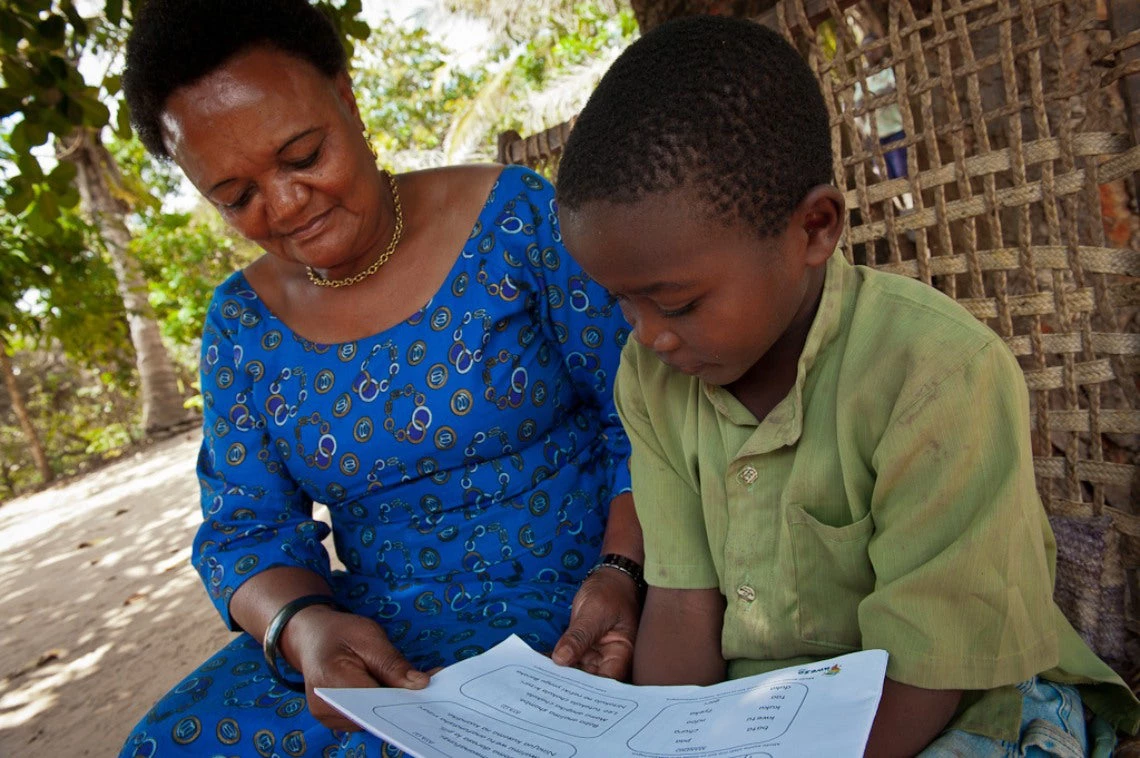As the dad to three boys (including twins!) I can attest that parenting has been a source of boundless joy, but also at times I have felt unprepared, even overwhelmed.
The single most important ingredient for early development is the relationship a child has with their primary adult caregiver. Caregivers are the child's first teacher, playing a fundamental role in providing both care and protection and foundational skills and learning. The brain development this supports takes place rapidly even before the child enters kindergarten, establishing the foundations upon which life’s trajectories will unfold. If we want to support children to grow, develop and meet their potential, we must support their caregivers.
Parenting interventions are needed to support parents worldwide
Millions of children under five in low- or middle-income countries (LMICs) lack adequate holistic care and protection, hindering their developmental potential. This care is essential for developing foundational cognitive and social-emotional skills that determine lifelong learning, health, and economic outcomes.
Parenting interventions have been found to promote the nurturing care of children and improve early child development (ECD) outcomes in more than 100 randomized trials around the globe. These interventions typically build on what parents are already doing to care for and to support their child’s health, nutrition, protection, and early learning opportunities.
Impactful parenting interventions typically encourage caregivers to play more with their children and support early learning, such as through singing, talking, telling stories, reading picture books, and using locally available toys and games. Other parenting interventions that focus on violence prevention, positive discipline and parental mental health, have also been found to be consistently effective.
Yet, few studies have evaluated interventions implemented at scale. Cuna Mas, delivered to over 67,000 families in rural Peru, demonstrated positive impacts on child development. A parenting intervention delivered in Chile also found benefits to children’s development, home environments, and parenting skills. Recent evidence indicates that engaging parents to participate in and contribute to intervention design, delivery, governance, and advocacy processes may additionally support successful scale-up and sustainability.
Filling the gaps in evidence and supporting parents
The World Bank will support its teams and governments to help fill gaps in the evidence base and provide hands-on support in designing and implementing parenting programs at scale.
The Education Global Practice is embarking on a multi-year program to provide World Bank task teams and governments with actionable and clear advice on how to implement effective parenting interventions at scale and examine key questions for which the literature does not yet provide definitive answers. This includes questions such as:
- How should we design parenting interventions, especially at scale? A study examining the implementation characteristics of 120+ parenting interventions found that a lack of reporting makes it difficult to understand how program characteristics influence caregiver and child outcomes. This makes it difficult to replicate, adapt and scale interventions across contexts. Key gaps in design include costing, training and supervision, delivery agent characteristics, incentives, modality, platform, targeted vs. universal approaches, dosage, and family and community resources and barriers.
- How much does an effective program cost? With cost-effectiveness ratios ranging from $29 to $5,063 from one setting to the next in terms of child development outcomes there is a pressing need for work on standardizing collection and reporting of cost data.
- How do we better support parents and children in settings affected by fragility, conflict and violence (FCV)? Support for mental health and culturally relevant, multi-sectoral approaches are urgently needed. Of the estimated 100 million displaced people worldwide, approximately 12 million are children under the age of five years and more than 1 in 6 children lives in a conflict zone, numbers which are unfortunately only anticipated to increase. Emergency contexts heighten the importance of nurturing care during early childhood to promote resilience and help children cope with adversity and trauma.
- How do we effectively leverage technology to reach more parents, more frequently? The use of technology in parenting interventions is emerging. It has potential but results have been mixed. Remote delivery methods, like audio calls and digital tools, have been explored, showing varying levels of effectiveness. We need to know more about the optimal mix of technology-based and in-person delivery so that we can leverage the benefits of using technology while still ensuring interventions have impact.
- How do we reach multiple caregivers, not just the mother? The majority of existing parenting programs have typically targeted young children and their mothers. Programs must recognize the importance of involving multiple caregivers and include fathers, grandparents, and other family members. Also, attention is turning to adolescent parents and their unique needs.
- How do we ensure parents of children with disabilities receive appropriate support? Early intervention through parenting programs for children with developmental disabilities shows benefits, but parents of these children are often excluded from broader parenting interventions.
What are some other questions that we should investigate? Let us know in the comments below!
To receive weekly articles, sign-up here



Join the Conversation